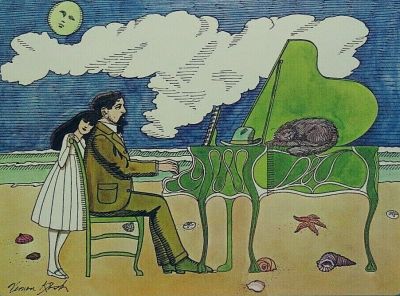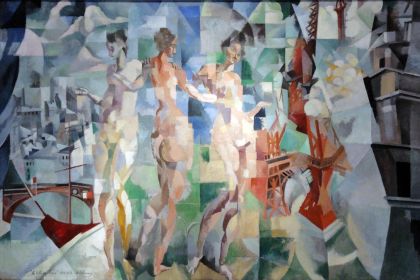PIANO
Two Arabesques: the fledgling impressionism of Debussy's early work

Debussy's Piano Works by Peter Frankl CD cover
Deux arabesques are two piano pieces written by Claude Debussy in the late 1880s and are now considered to be one of the earliest expressions of French impressionism. First published in 1891 in a circulation of 400 copies, the works did not receive much attention. The surge in popularity occurred a decade later, as evidenced by the many orchestral transcriptions for various solo instruments that appeared at the beginning of the 20th century.
In classical music, the pioneering works of this genre appeared at the end of the Baroque era, with the first arabesque piano piece composed in 1839 by Robert Schumann.
Initially, the term arabesque referred to the subtle ornamental embellishments of the Moorish architecture and only later spread into music. Indeed, the genre's harmonic palette and elegance of its rhythmic structures can be associated with Moorish architectural aesthetics, although Debussy himself associated perceived the genre as the musical reflection of nature itself.
Listen to Debussy's Arabesque No. 1 in E major performed by Claude Helffer:
Most arabesques, including Debussy's pair, are written in the polyphonic traditions of Western classical music and do not resemble Arabic music which typically follows a sole melodic line that varies through the extensive system of musical scales.
Listen to Debussy's Arabesque No. 2 in G major performed by Claude Helffer:
There are some recordings of Two Arabesques allegedly attributed to Debussy himself. Although the composer passed before the advent of the commercial sound recording era, he nevertheless experimented with the Welte-Mignon reproducing piano during his lifetime. A very complex pneumatic device, the instrument was designed to read perforated piano rolls and reproduce even the most nuanced compositions adequately, often interpreting the strength and duration of keystrokes. In total, Welte-Mignon's catalog includes six piano rolls containing fourteen compositions recorded by Debussy in 1913, but neither Deux arabesques nor Suite bergamasque is listed among them.



